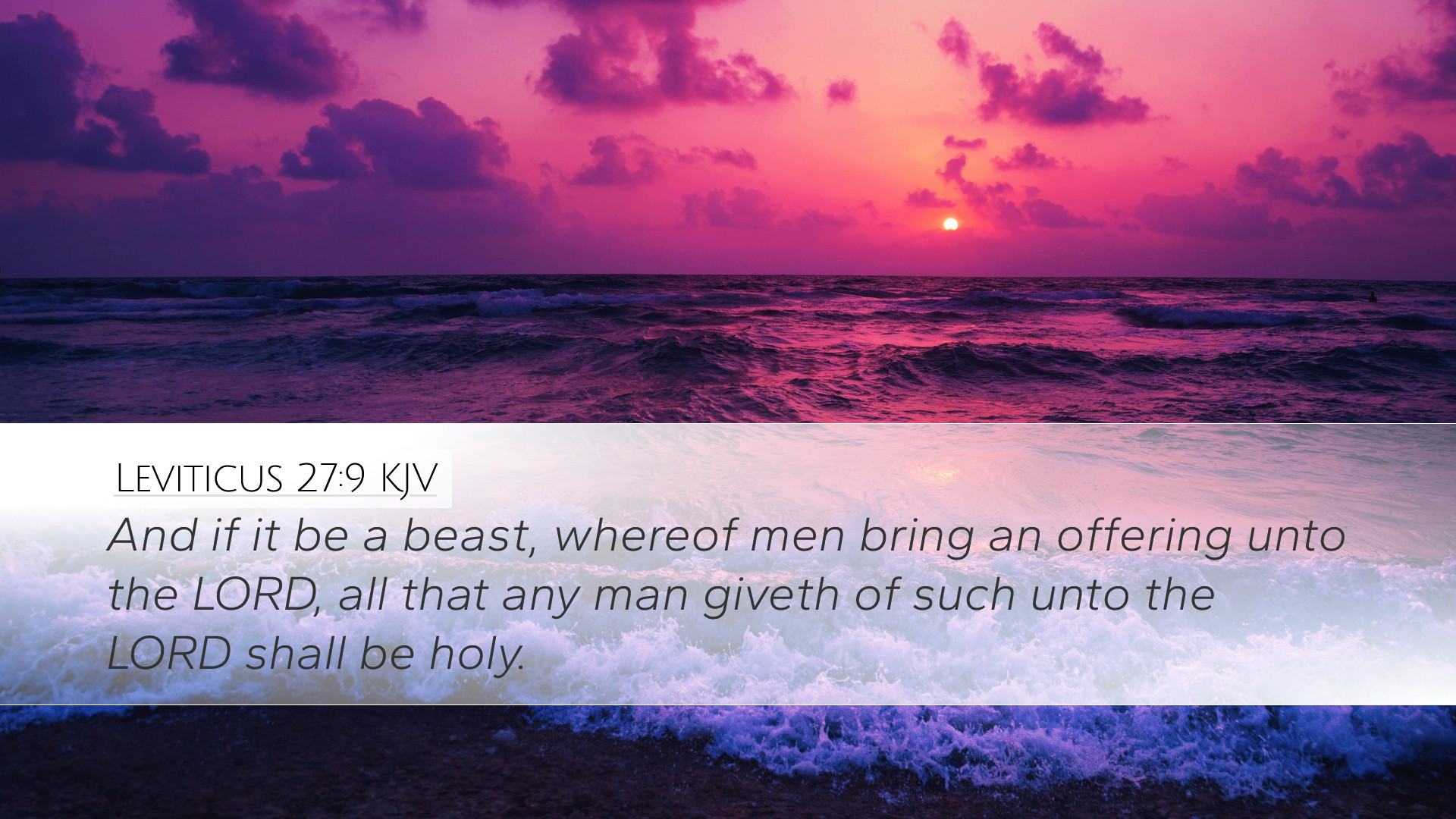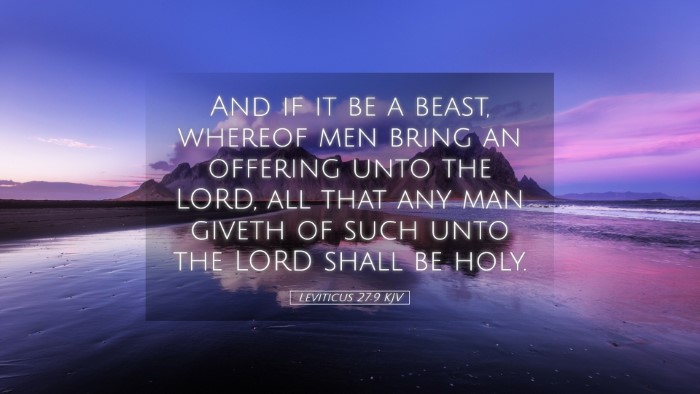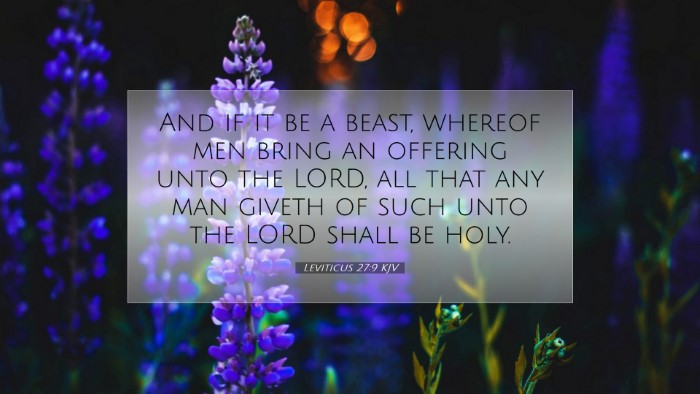Commentary on Leviticus 27:9
Verse (Leviticus 27:9): "And if it be a beast, whereof men bring an offering unto the LORD, all that any man giveth of such unto the LORD shall be holy."
Overview
The context of Leviticus 27 centers around vows and dedications made to God, particularly in relation to values assigned to persons or possessions dedicated to Him. This verse highlights the holiness of offerings made to the Lord, particularly focusing on animals designated for offering.
Insights from Public Domain Commentaries
Matthew Henry's Commentary
Matthew Henry emphasizes that the beasts referred to in this verse represent those animals which are essential for sacrificial offerings. He underscores the importance of the intention behind the offering and the dedication to God, asserting that offerings intended for the Lord must be treated with utmost respect and reverence. He notes that the term “holy” signifies that once an animal is offered to God, it is set apart from common use and is to be treated as sacred.
Henry also remarks on the broader principle: anything that is offered to God invokes a sense of responsibility. The giver should recognize the significance of their offering; it is not merely a transaction but rather a covenantal act that reflects their relationship with the Divine.
Albert Barnes' Notes on the Bible
Albert Barnes provides a detailed exposition of the terminology and implications of the term “holy.” He notes that the Hebrew root conveys a sense of separation, emphasizing that dedicated offerings must adhere to a distinct standard of purity and purpose. Barnes observes that this passage stresses the necessity for the individuals who vow such offerings to maintain integrity in their commitments to God.
He explains the cultural implications of such offerings in ancient Israel, where livestock played a crucial role in both agricultural life and religious practices. Thus, the offering of an animal was not only a spiritual act but also a considerable economic decision. Barnes cautions that individuals must be mindful not to violate their vows since such actions can lead to dire consequences as outlined elsewhere in the Torah.
Adam Clarke's Commentary
Adam Clarke provides a theological perspective on the implications of giving dedicated offerings. He discusses the concept of holiness in relation to sacrificial practices, asserting that the essence of an offering is its intention to glorify God. Clarke illustrates a connection between the act of giving and the broader spiritual principle of yielding oneself wholly to God. He encourages believers to delight in their offerings rather than view them as burdens.
Furthermore, Clarke emphasizes that the offerings signify a recognition of God's ownership over all things and a profound acknowledgment of His providence. He encourages pastors and theologians to reflect on how modern offerings—be they time, talents, or resources—reflect the same spirit of dedication and holiness as mandated in this ancient text.
Theological Implications
As this commentary reveals, Leviticus 27:9 functions on multiple levels—the practical, the legal, and the spiritual. The call for offerings and the acknowledgment of their holiness highlight core theological truths related to God's sovereignty, human obligation, and the nature of worship.
Importance of Dedication
- Understanding Ownership: Recognizing that everything belongs to God leads to a mindset of stewardship.
- Covenantal Relationship: Offerings signify the covenant between God and His people, re-affirming the need for faithfulness in commitments.
- Community Responsibility: The act of offering helps to foster a communal sense of responsibility for worship and dedication.
Encouragement for Modern Believers
For contemporary Christians, this passage serves as a profound reminder that the offerings of today—whether material or spiritual—should be approached with the same reverence and commitment demonstrated in ancient Israelite practices. It speaks to the heart of what it means to live a life of dedication to God.
Conclusion
The insights garnered from Matthew Henry, Albert Barnes, and Adam Clarke encourage a rich engagement with the text of Leviticus 27:9. Understanding the sacredness of our offerings invites deeper theological reflection and practical application within the life of the church. As pastors, students, theologians, and scholars examine this passage, it calls them to a renewed commitment to holiness in giving, serving as a powerful reminder of the significance of dedicating both their resources and their hearts to God.


